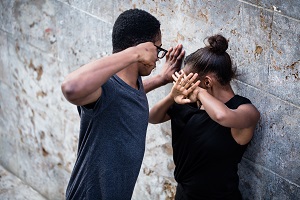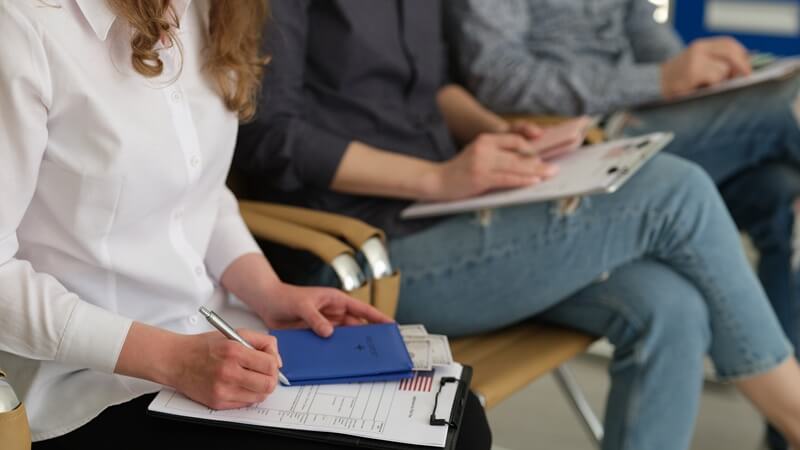A VAWA Attorney Fights For Domestic Violence Victims
Facing domestic violence is a harrowing experience, leaving victims feeling trapped and powerless. However, there is hope. A VAWA Attorney can give the support and guidance needed to reclaim safety and independence. They provide vital legal assistance to victims, helping them navigate the legal system.
Here, explore how an attorney advocates for freedom and presents the alternative pathways to obtaining a Green Card. Learn about the detailed application processes for VAWA and U Visas and the challenges you might face. Delve into the vital support that can transform lives and offer a fresh start.

A VAWA Attorney Champions Your Freedom
Escaping an abusive situation is a monumental step, but for immigrants, the journey doesn’t end there. Dealing with the immigration system can be daunting, especially when dealing with domestic violence. That’s where legal support becomes essential. Attorneys experienced in VAWA cases are crucial in helping immigrants find safety and stability.
Firstly, they provide a lifeline by helping victims understand their rights and options. Immigration laws are complicated, and having a knowledgeable advocate can make all the difference. They guide clients through the application process for protections like VAWA self-petitions and U Visas, which offer a path to legal residency without the abuser’s involvement.
Attorneys also ensure that all necessary documentation is gathered and correctly submitted. It includes evidence of the abuse, which can be challenging to compile, especially when victims fear retribution. Legal professionals know how to build a compelling case that meets immigration requirements, increasing the chances of a successful outcome.
Moreover, they offer representation in immigration court, standing by their clients during hearings and advocating fiercely on their behalf. It is invaluable, as it can considerably reduce the pressure and anxiety associated with legal proceedings.
Attorneys also provide ongoing support, helping clients with renewals and any additional immigration needs that may arise. This continuous assistance ensures that victims maintain their legal status and can focus on rebuilding their lives without fear of deportation or further abuse.
Alternative Pathways To A Green Card
For immigrants facing domestic violence, securing a Green Card can provide a crucial sense of stability and independence. There are multiple pathways to achieving this, each designed to offer protection and a fresh start. Two primary routes include the Violence Against Women Act (VAWA) and the U Visa. Understanding these options can help victims make informed decisions about their future.
VAWA
VAWA offers a powerful avenue for those who have suffered abuse at the hands of a U.S. citizen or Green Card holder spouse, parent, or child. This provision allows victims to self-petition for a Green Card without the consent of their abuser, providing a way to escape the cycle of abuse safely.
To qualify for VAWA, victims must demonstrate:
- A qualifying relationship with the abuser (spouse, parent, or child).
- Proof of the abuser’s U.S. citizenship or lawful permanent resident status.
- Evidence of the abuse can include physical, emotional, or psychological harm.
- That they lived with the abuser.
- That they are of good moral character.
VAWA self-petitioners benefit from several vital protections. First, they can apply for work authorization to gain financial independence. Second, their immigration status becomes independent of their abuser, removing a leverage point used by abusers to control their victims. Lastly, they can include their children in the petition, ensuring the entire family can seek safety together.
U Visa
The U Visa is another vital option for victims of certain crimes, including domestic violence. This Visa provides provisional legal status and work eligibility, with the possibility of applying for a Green Card after three years. It encourages victims to report crimes, such as domestic violence, without fear of deportation, enhancing public safety. To qualify for a U Visa, victims must demonstrate:
- They have experienced significant physical or mental abuse as a result of qualifying criminal activity.
- They possess information about the criminal activity.
- They have been helpful or likely to benefit law enforcement or government officials who investigate or prosecute the crime.
- The criminal activity violated U.S. laws or occurred in the United States.
The U Visa process requires victims to prove they cooperated with the police. This step underscores the importance of reporting the crime and participating in the investigation or prosecution. Once granted, the U Visa offers several benefits, including legal status for up to four years and work authorization. After maintaining U Visa status for three years, you may apply for a lawful permanent residency or a Green Card.
Deciding between the two depends on individual circumstances. VAWA is suitable for those with a direct familial relationship with their abuser. The U Visa is a lifeline for those whose abusers do not fit the familial criteria or who have suffered abuse from non-relatives. Alternative pathways like these offer vital lifelines for domestic violence victims seeking a fresh start in the United States.
Understanding these options and their protections can empower victims to take control of their lives. With the help of dedicated legal professionals, victims can navigate the steps successfully, securing their future and freedom.
VAWA & U Visa Application Process
Applying for VAWA and U Visas involves distinct steps tailored to the needs of domestic violence victims. Understanding these processes helps ensure a smoother journey toward securing legal protection and residency.
VAWA Application Process
The VAWA self-petition process begins with completing Form I-360, the Petition for Amerasian, Widow(er), or Special Immigrant. Alongside this form, applicants must provide:
- Evidence of their relationship to the abuser.
- Proof of the abuser’s U.S. citizenship or lawful permanent resident status.
- Documentation of the abuse.
This proof can include police reports, medical records, or affidavits from individuals who can verify the abuse.
Next, the applicant submits Form I-485, the Application to Register Permanent Residence or the Adjustment of Status to acquire a Green Card. This step involves a thorough background check, fingerprinting, and an interview with an immigration officer. If approved, the victim receives lawful permanent resident status.
U Visa Application Process
The U Visa process starts with Form I-918, the Petition for U Nonimmigrant Status. Applicants must also submit Form I-918, Supplement B, verifying the victim’s cooperation in the investigation or prosecution of the crime.
In addition to these forms, applicants must provide evidence of the qualifying crime and the resulting substantial physical or mental abuse. This documentation can include police reports, medical records, and personal statements detailing the abuse and its impact. Once the U Visa is granted, victims receive temporary legal status. They can also get work authorization for a maximum of four years.
After maintaining U Visa status for three years, victims may apply for a Green Card by completing Form I-485. Application processes require detailed documentation and adherence to specific legal steps. Legal support can be invaluable in navigating these procedures, ensuring victims secure the necessary protections.
A VAWA Attorney Handles Challenges & Pitfalls
Navigating the legal landscape of VAWA and U Visa applications can face challenges and pitfalls. An experienced attorney provides essential support, ensuring victims effectively overcome these obstacles.
One major challenge involves gathering sufficient evidence to support the claim of abuse. Victims often face difficulty obtaining police reports, medical records, and personal affidavits, especially when they fear retribution. Attorneys help by identifying and collecting the necessary documentation, ensuring a comprehensive and compelling application.
Another common pitfall is the complexity of the application forms. Errors can lead to delays or denials. Lawyers guide victims through each step, ensuring they complete the forms accurately and thoroughly. They know the intricacies of the process, which helps avoid common mistakes that could jeopardize the application.
Language barriers also pose significant hurdles. Non-English-speaking victims might struggle to understand legal terminology and requirements. Attorneys bridge this gap by providing clear explanations and ensuring the translations of all communications are accurate.
Victims often experience emotional and psychological stress, making the process even more daunting. Legal professionals offer legal experience and compassionate support, helping victims stay focused and motivated. Additionally, dealing with law enforcement for U Visa certification can be intimidating.
Victims might hesitate to engage with authorities due to fear of deportation or further victimization. Attorneys facilitate these interactions, advocating for their clients and ensuring that law enforcement agencies understand the importance of certification.
A skilled lawyer addresses the numerous challenges and pitfalls of VAWA and U Visa applications. Their experience and support increase the likelihood of a successful outcome, providing victims with the protection they need to rebuild their lives.

Lincoln-Goldfinch Law – Abogados de Inmigración Protects Your Rights
Lincoln-Goldfinch Law – Abogados de Inmigración stands as a beacon of hope for domestic violence victims seeking safety and legal protection. Its dedicated attorneys provide guidance to navigate these complex legal pathways. They understand immigrants’ unique challenges and work tirelessly to protect their clients’ rights.
One of its standout features is its commitment to accessibility. Recognizing its clients’ diverse backgrounds, it offers services in both English and Spanish. This bilingual approach ensures that non-English-speaking clients receive clear, understandable legal advice and support.
The law firm’s attorneys guide clients through every step, from gathering evidence to completing application forms and representing them in court. Their compassionate and personalized approach helps alleviate the stress and anxiety associated with legal proceedings.
Summary
Escaping domestic violence involves more than physical safety; it also requires navigating complex immigration laws. A VAWA attorney helps victims secure legal protection and independence. VAWA and U Visa provide a pathway to a Green Card for those experiencing domestic violence by U.S. citizens or lawful permanent residents.
Both processes require detailed documentation and legal experience. The attorneys from Lincoln-Goldfinch Law – Abogados de Inmigración can guide clients through each step, ensuring rights are protected and helping victims rebuild their lives.
Contact A U.S. Immigration Attorney Today!
Categories
How To Find Us
What Our Clients Say
“This Lawfirm is great, very professional and helpful. I love that they are always in communication and always available for when you have questions . 100% recommended by me and my family. Thank you Lincoln-Goldfinch Law – Abogados de Inmigración”





